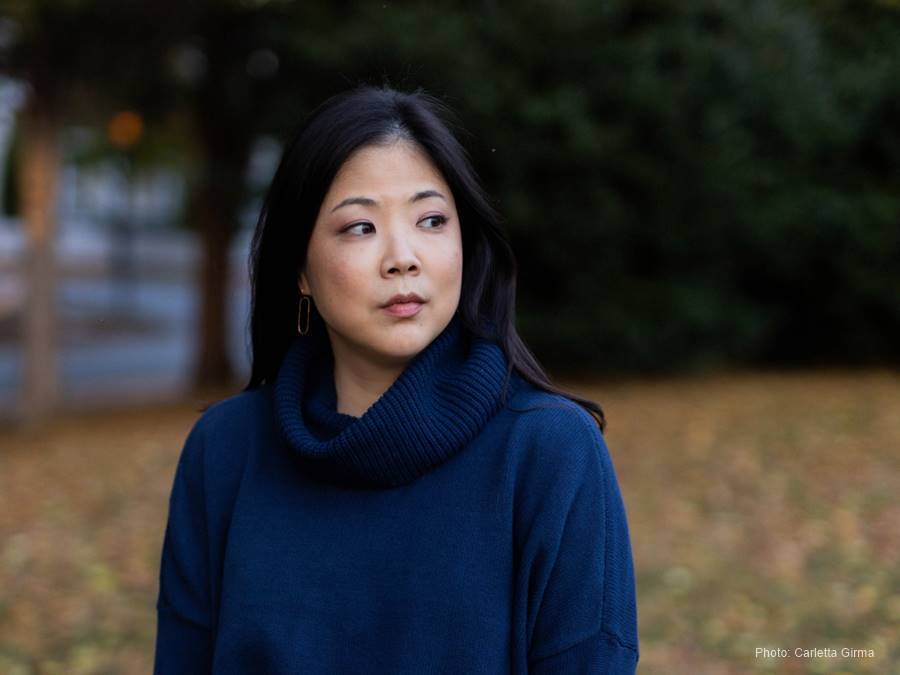
By Jae-Ha Kim
Chicago Tribune and other outlets
June 20, 2023
With her first memoir “All You Can Ever Know,” Nicole Chung candidly offered personal reflections on being a transracial adoptee. The bestselling author’s latest book “A Living Remedy” (Ecco) deals with grief, classism and America’s broken healthcare system, which contributed to the deaths of both her adoptive parents.
Asked if it was difficult for her to share so much about her family’s experiences, Chung said, “I’m actually a fairly private person, which I know seems rather at odds with being a memoirist and essayist, but it’s true. When I’m drafting, I can’t think too much about what people may think about me or my life when they read. When I’m revising, I will spend a lot of time winnowing down, clarifying or sharpening things. As part of that process, I make sure that I am OK with everything that remains in the text. In general, I’m less careful with myself than I am with the people in my life. I don’t want them to be unfairly or needlessly exposed. Their dignity, safety and privacy is very important to me.”
Born in Seattle and raised in Oregon, Chung currently lives with her family in the Washington, D.C. area. She is active on social media under the usernames @nicolesjchung (Instagram, Twitter) and @nicolechung (Bluesky).
Q: When people hear that you’re an adoptee, do many of them assume you were born in South Korea?
A: So many, yes. The second line in my first book, “All You Can Ever Know,” states that my birth parents moved here from Korea before I was born. I share this information in “A Living Remedy” and many essays and interviews as well. And yet many articles and actual book reviews have claimed that I was born in Korea. I try to correct the record every time – not out of any defensiveness, but because being a U.S.-born adoptee means that the laws governing my adoption, the options available to me for search and reunion with my birth family, etcetera are different. There is a great deal of overlap between my experience and that of Korean-born adoptees, but I have the privilege of not having to worry about proving my U.S. citizenship, for example, whereas too many foreign-born adoptees are actually without proof of their citizenship because their adoptive parents or their adoption agency or both didn’t do what was necessary to finalize and secure documentation of their citizenship. Congress needs to pass the Adoptee Citizenship Act! So I always try to be clear about where I was born and adopted, and make sure people also know that I can’t and don’t want to speak for all Korean adoptees.
Q: Growing up as a visible minority in a very white environment, how did you navigate the microaggressions and racism you faced?
A: I didn’t talk with anyone about it. I might have written something about being “teased” in my diary, that was probably it. I didn’t tell my parents. They were white and I felt they wouldn’t understand. I think I also wanted to protect them, but the biggest reasons I kept it to myself, really, were shame and sheer confusion. When the racist bullying started, I was seven or eight years old. No one had ever talked with me about racism, or anti-Asian racism specifically. I didn’t have the vocabulary for what was happening to me, so I couldn’t have explained it to anyone else. It was not something I talked about, even with my family members, until I was much older.
Q: Where would you like to go that you have never been to before?
A: I’ve still never been to Korea and would dearly love to go, though I admit it scares me a bit. I’ve never been sure how I’ll be seen or received there as a Korean American adoptee – someone who is obviously of Korean heritage, but was raised and has always lived not only outside the country but also outside the culture. At the same time, I don’t want that fear to keep me away from my mother country. I’m hoping that my sister Cindy, who I reunited with 15 years ago, will go with me someday.
Q: What is your favorite vacation destination?
A: I have always loved a beach, especially one that’s cool, windy, and deserted. Being at the ocean always reminds me of trips to the Oregon coast with my mom or my grandma, which were really the only family vacations I went on as a kid. I also deeply love the redwoods and old growth forests we’d go to. When I think about going somewhere to relax, I think about where I can see forest, mountains, cold saltwater, or all three at once.
Q: What is your guilty pleasure when you’re on the road?
A: I feel guilty about absolutely none of my pleasures, especially when I’m on the road. There are so many small discomforts and inconveniences that go along with travel, so I never feel bad for ordering room service or buying more snacks than I strictly need or getting myself a little treat. I visit a lot of bookstores and I try to buy something at every stop to support those stores. If I’m traveling for a special event, sometimes I’ll try to find a place to get my hair or makeup professionally done. Regular massage therapy helps with my chronic pain, so when I’m on tour, sometimes I’ll book a massage at a day spa if I can find one close to where I’m staying.
Q: When you go away, what are some of your must-have items?
A: A new book or two on my iPad, noise-canceling headphones, sunglasses, sneakers, supersoft sweatpants, several more pairs of socks and underwear than I will actually need, my favorite skincare products and the tiny personal pharmacy I now require.
© 2023 JAE-HA KIM
DISTRIBUTED BY TRIBUNE CONTENT AGENCY, LLC.
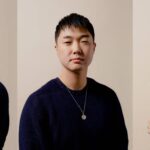
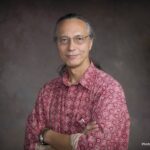

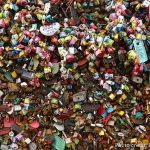
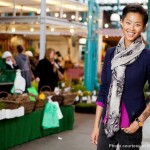
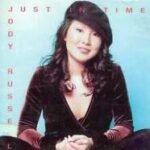
2 thoughts on “Go Away With … Nicole Chung”